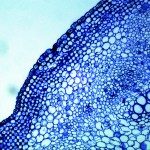Lien vers Pubmed [PMID] – 23839924
Eur. J. Immunol. 2013 Oct;43(10):2730-40
Type I interferons (IFNs) have the dual ability to promote the development of the immune response and exert an anti-inflammatory activity. We analyzed the integrated effect of IFN-α, TCR signal strength, and CD28 costimulation on human CD4⁺ T-cell differentiation into cell subsets producing the anti- and proinflammatory cytokines IL-10 and IFN-γ. We show that IFN-α boosted TCR-induced IL-10 expression in activated peripheral CD45RA⁺CD4⁺ T cells and in whole blood cultures. The functional cooperation between TCR and IFN-α efficiently occurred at low engagement of receptors. Moreover, IFN-α rapidly cooperated with anti-CD3 stimulation alone. IFN-α, but not IL-10, drove the early development of type I regulatory T cells that were mostly IL-10⁺ Foxp3⁻ IFN-γ⁻ and favored IL-10 expression in a fraction of Foxp3⁺ T cells. Our data support a model in which IFN-α costimulates TCR toward the production of IL-10 whose level can be amplified via an autocrine feedback loop.
